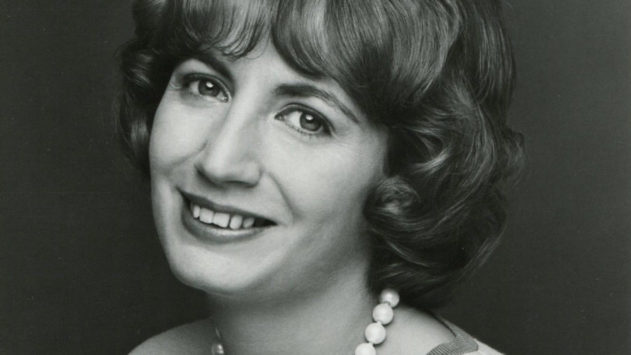She built us worlds and made them homes. We feel nostalgia for her films and television because she fills her viewers with the thing we’re yearning for: a sense of belonging.
I am neither a movie person nor a sports person, a Laverne and Shirley person nor a Tom Hanks person, but Penny Marshall meant the world to me.
I came of age in the era of Big—but I did not see the film until this summer, in a 30th anniversary limited theatrical screening. On view of the film’s introductory credits, I learned that Marshall was the first woman director to gross over $100 million at the box office. It feels crass to reduce the legend’s legacy to that fact—which is sure to be repeated many times in coming days—but I love that she shattered that ceiling.
While I did not see Big in its initial run, I brought my son to the theater for the re-release. It was the first feature film he saw on a big screen. He loved it, and I loved watching him love it, although I confess that Big is not my favorite movie. I admired the premise and the script, the direction and the acting. It encapsulated the childhood desire to grow up, which feels universal to me, and the desire to return, an experience that eludes me.
In the end (spoiler alert), Tom Hanks’ character, Josh, makes the decision to revert to childhood, and return to his child-life, his best friend, and family. “Why would you want to go back?” I thought, identifying with his adult-life girlfriend Susan, played by Elizabeth Perkins, who denies his request to revert to childhood herself. “I’ve been there before,” she said, “It’s hard enough the first time.” Josh, of course, can’t continue pretending to be a grown up. Susan can’t go back. And Josh leaves.
Under Marshall’s direction, Tom Hanks was outstanding, but I was far more interested in Elizabeth Perkins’ story. Seeing the film as an adult made me profoundly sad—nostalgic for a youth I didn’t have. The relationship dynamic between Susan (a full-fledged adult) and Josh (a boy masquerading as a man) struck me as a parable for many of the adult relationships I’d experienced, and many more I had seen. I looked at my child, laughing throughout the film, and I was reminded of too many men. If I’m being honest, the movie struck a raw nerve in me.
While I took umbrage with Big for personal reasons, A League of Their Own (1992) was and is my favorite movie. The film—which I saw at a critical age as a girl—maps onto my own sense of childhood nostalgia. Like many other women, I find it extraordinary for the feelings it evokes in me. The film centers on the women of the Rockford Peaches, a fictionalized World War II-era women’s baseball team that played for the All American Girls Professional Baseball League.
I was not an athlete; as a 9-year-old, I had not—to my knowledge—been excluded from opportunities on the basis of my gender, but I spent my childhood emotionally alone, feeling dislocated. I felt like an outsider—separated by the constant activity in my brain as much as by the dysfunction and trauma that was operationalized within my family.
This film was full of women characters who were outsiders, passionate about baseball, bucking gendered norms in the service of the thing they loved. What’s more, they were all, in their own ways and by normative standards, flawed—defiant of their fathers or their husbands; devalued and abused by men; illiterate and defiant; sexually liberated or resistant to the male gaze.
It didn’t matter that I had never watched a game of baseball and couldn’t hit a ball to save my life; years later, I would beg the baseball-loving man I loved to watch the film with me: As a child and a woman in middle age, when I got near A League of Their Own, the league became my league.
The film evokes a history of gender inequality and—in its brief but resonant highlighting of the racial exclusion of black women from the league—it gave a young white girl in the early 1990s her first narrative glimpse into the racial injustice of Jim Crow. It was a small and insufficient moment, but it stayed with me.
I wanted the League to live on forever; more to the point, I wanted to crawl inside the movie.
I experienced a profound sense of dislocation watching A League of Their Own; it was the first time in my life I felt I might not always be alone. I remember crying as the credits rolled, thinking “This is what it means to be a part of something.” This sense is a hallmark of Penny Marshall’s work: from her days as a television actor on Laverne and Shirley to her critical and commercial achievements as a film director.
Some directors are auteurs, and there’s a place for that; Penny Marshall’s oeuvre is the creation of the beloved community. Her legacy can’t be measured by her film and television itself, but by what the work did and does, which is affect people deeply. That’s what Penny Marshall did for many others and for me.
Marshall’s creative achievements will stand the test of time. She built us worlds and made them homes. We feel nostalgia for her films and television because she fills her viewers with the thing we’re yearning for: a sense of belonging. It will be sad to watch Marshall’s work now, knowing that she’s gone—but the work will endure. And in her work, she’ll live on. Every viewing is a homegoing.
A.L. Giannelli lives, writes, and teaches in Western Massachusetts, where she is currently at work on her first book. Her writing has appeared in publications including The Manifest Station, Salon, and the Washington Post.
Other Links:

